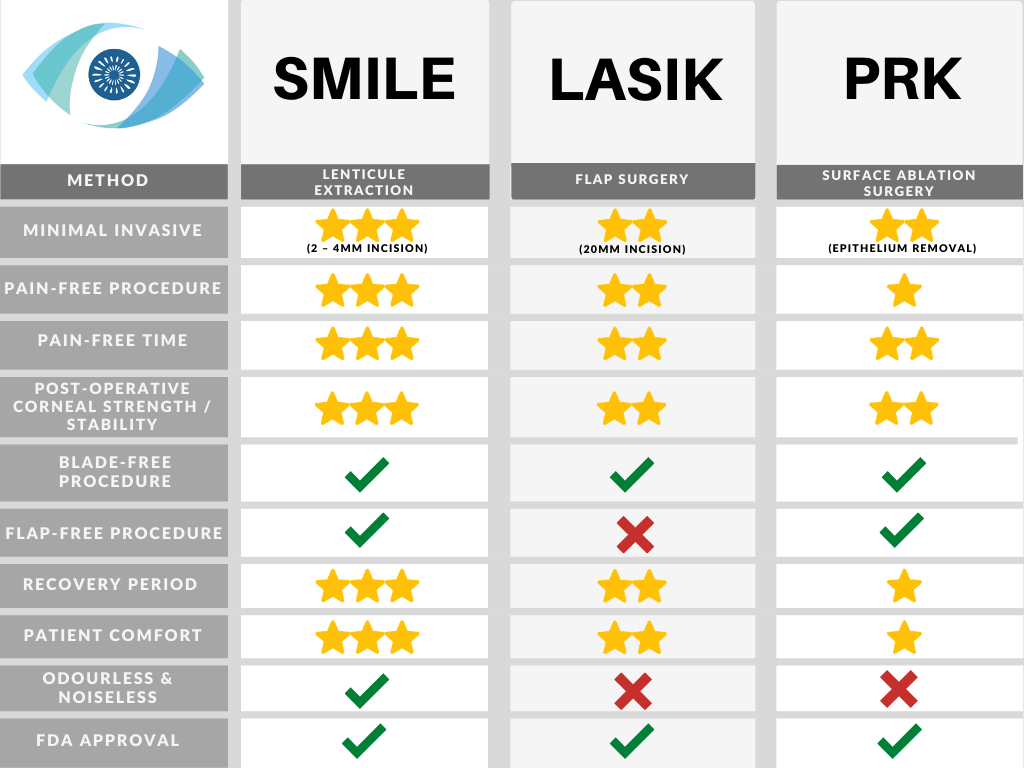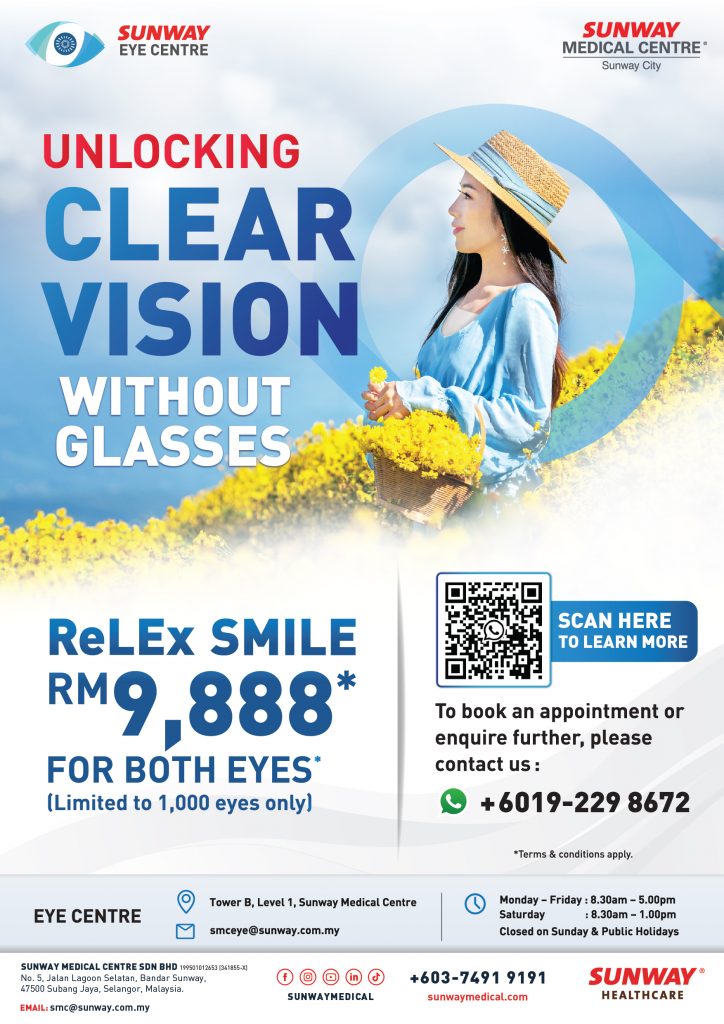Laser Vision Correction - An Overview
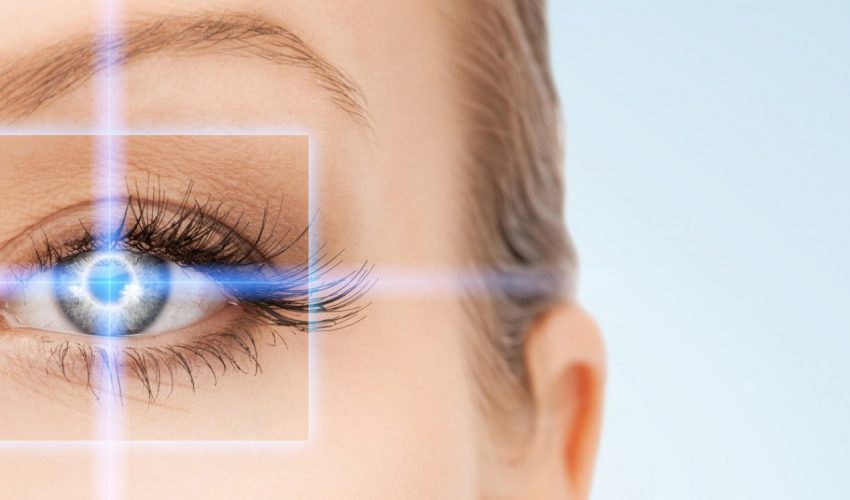
Vision correction solutions such as eyeglasses and contact lenses are popular choices among many to help achieve clear vision. However, these options can sometimes be inconvenient as it could limit the activities that you would like to engage or at times, it could cause discomfort.
Another option that is gaining popularity is Laser Vision Correction (LVC) – the product of medical advancement that will give you the opportunity to regain clear vision for a long-term.
These days, we are blessed that the medical advancement makes it possible for us to gain back clear vision. With this being said, we are aiming on a long-term vision correction other than ordinary glasses or contact lenses – Laser Vision Correction (LVC).
This field has seen many developments within a span of 30 years. In particular, the three most widely performed techniques today (PRK, FemtoLASIK and ReLEx SMILE) are able to treat most refractive errors very effectively and even gently. With the most advanced procedure – ReLEx SMILE, it supports a comfortable patient experience with its innovative minimally invasive method.
SMILE

SMILE, the most advanced innovation in LVC, is a quick and minimally invasive procedure that has been FDA approved. It acts more gently on the cornea as the incision is 80% smaller as compared to LASIK. This quick and precise medical technology has been performed more than 5 million times worldwide.
SMILE may be an option for many people with mild refractive errors to severe nearsightedness and astigmatism.
Limited Time Offer! Check Out Our Exclusive Deal!
Terms and conditions:
- Comprehensive package, including post-operative medication, 2x follow-up visits, doctor consultations, and surgical fees.
- Appointment booking is requires.
- For individual aged between 18 to 45 years.
Is a full eye assessment mandatory?
Not all candidates are suitable for laser vision correction. This eye assessment will help us determine if your eyes meet the prerequisites before embarking on your vision correction journey. During the assessment, you will meet with our Refractive Surgeon.
We Offer 0% EPP (Easy Payment Plan)
EPP is a convenient repayment scheme that enables you to make transactions using your credit card and repay the amount in installments over a specified period without incurring any interest. Please inquire with us about eligible banks for this offer.
To hear directly from our satisfied patients, visit our ReLEx SMILE review page!
FemtoLASIK

More commonly known as LASIK, this technique has been the most popular LVC method since its invention in the 90s. However, with the advancement in LVC technology, SMILE becomes more well known as a surgical intervention for long-term vision correction. LASIK requires flap creation using femtosecond laser and later uses excimer laser to reshape the cornea to correct your vision.
Photo-Refractive Keratectomy (PRK)
PRK was first introduced in the late 1980s. Although visual recovery time for PRK is slightly longer as compared to the above techniques, this method still remains well-accepted as it has become an option for LVC candidates with relatively thin cornea or has corneal scar.
ZEISS PRESBYOND: Advanced Laser Vision Correction for Presbyopia
Understanding Presbyopia (Rabun Tua)
Our eyesight plays a vital role in how we perceive and interact with the world. As we age, particularly after 40, presbyopia becomes a common issue, making it difficult to focus on close objects and causing blurred vision and reading challenges. Fortunately, recent advancements in vision correction offer effective solutions.
Innovative Solution: ZEISS PRESBYOND
ZEISS PRESBYOND Laser Blended Vision represents a significant leap forward in corneal refractive surgery. Utilizing natural eye aberrations and cutting-edge software, this method integrates with the ZEISS MEL® 90 excimer laser to deliver precise binocular vision correction. This approach ensures clear focus at various distances while maintaining high visual quality.
What is Presbyopia?
Presbyopia is a natural aging process that typically begins around age 40. Similar to a camera lens, the eye uses the cornea and lens to focus light onto the retina, creating clear images. Over time, the lens loses flexibility, making it harder to focus on objects at different distances. This often results in the need for reading glasses or contact lenses. Presbyopia can also occur alongside other vision issues like nearsightedness, farsightedness, or astigmatism. Fortunately, various treatments can help people see clearly at all distances.
Laser Vision Correction Options for Presbyopia
Monovision

Monovision is a conventional treatment where one eye is corrected for distance vision and the other for near vision. While this method can be effective, it requires the brain to adjust to seeing two images at different distances. Many patients find it challenging to adapt, and studies show only 59-67% of patients successfully merge the two images. Common issues include compromised vision in the intermediate range and a significant adjustment period.
Presbyond – Laser Blended Vision

Laser Blended Vision offers a customized treatment that provides clear vision at all distances. Unlike traditional monovision, this method uses binocular vision to fine-tune the depth of field for each eye, creating a “Blend Zone” that smooths the fusion of images in the intermediate range. Benefits include:
- Customized Treatments: Tailored solutions for clear vision at all distances.
- Advanced Eye Care: Represents a significant advancement in vision correction.
- Higher Tolerance: Up to 97% of patients tolerate the procedure well, compared to 59-67% with monovision.
- Enhanced Visual Quality: Maintains contrast sensitivity and preserves stereo acuity effectively.
Are You a Suitable Candidate?
Laser Blended Vision is ideal for those with busy, active lifestyles who find reading glasses inconvenient. It is also effective for patients with presbyopia and other refractive errors such as myopia, hyperopia, or astigmatism.
Assessment for Laser Blended Vision includes:
- Personal Vision Requirements: Consider hobbies, daily activities, and other factors that may influence the decision.
- Detailed Eye Examination: Evaluates refractive error(s), corneal curvature and thickness, and tests tolerance for monovision and ocular dominance.
- Consultation with an Eye Doctor: Your eye doctor will provide personalized advice on whether Laser Blended Vision is the right treatment for you.
The Treatment Steps
Before the treatment, anesthetic eye drops are applied to ensure a painless procedure. An eyelid holder is used to prevent blinking during the surgery.

Summary
Laser Blended Vision at a Glance:
- Age-optimized laser vision correction for presbyopia
- Based on established LASIK treatment
- Provides true binocular vision with a unique Blend Zone
- Ensures clear vision at near, far, and intermediate distances
- Offers a customized approach with individualized treatment profiles for each patient
Experience the benefits of ZEISS PRESBYOND and regain the ability to see clearly at all distances. Consult with our specialists at Sunway Eye Centre to determine if this advanced treatment is right for you.
For a visual simulation of how ZEISS PRESBYOND can improve your vision, visit the ZEISS PRESBYOND Simulator.
Who is suitable for LVC ?
-
-
- Stable eyeglass and contact lens prescription for at least 1 year
- Above the age of 18
- Not pregnant or nursing
- No history of any corneal disease such as keratoconus (the thinning of the cornea)
- No significant eye or medical problems such as diabetic retinopathy, glaucoma or macular degeneration
-
How do I prepare for LVC ?
-
-
- Make an appointment at our eye centre with one of our eye specialists.
- During your consultation, our specialist will run through with you a pre-operative assessment. During this time, take the opportunity to also discuss with your doctor your concerns and address any burning questions that you might have.
- Schedule your treatment and complete the treatment. Be ready to go home on the same day
-
0% Interest Easy Payment Plan (EPP) for LASIK
We understand that the financial aspect of LASIK can be a concern for many individuals. That’s why we ‘re excited to offer a 0% interest installment plan to make LASIK more accessible to everyone. Here’s
how it works:
- No Upfront Costs
- Interest-Free Payments
Credit Card Payment Plan Duration:
Bank |
Duration |
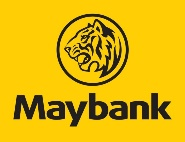 |
12 months |
 |
12 months |
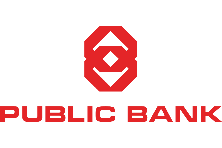 |
24 months |
With these 0% interest rate plans, you can choose the bank and duration that best suits your financial preferences for undergoing LASIK.
Frequently Asked Questions
Is LVC suitable for all glasses wearers?
No. But, LVC is suitable for most of the glasses and/or contact lens wearers who are looking at correcting their vision surgically. A thorough LVC Pre-operative assessment is required to check for your suitability prior to the treatment.
Will there be a need to put on glasses again after LVC?
There is a possibility that one might still need glasses at some point in lives especially when he / she develops reading difficulty (presbyopia) due to aging. Reading glasses are commonly prescribed to address this issue. Refractive lens exchange is an alternative to reading glasses.
Is LVC treatment pain-free?
No, there is no pain during the treatment however one may feel some pressure and touch around the eyes.
How long is the recovery time and do I need to stay home after the procedure? How soon can I resume working?
The recovery process differs from one treatment to another. Generally, it will take approximately 3 days to gain back functional vision. We advised you to rest at home for at least one day after the procedure. The period of time for a person to resume working depends on the nature of his/her occupation. Usually one is advised to take it easy for the first 3 days.
Whats are the do’s and don’ts after LVC treatment?
The Do
- Get as much rest as possible and take extra care of your eyes
- Follow doctor’s instructions on medication regime strictly
- Attend all follow-ups
- Use the eye shields during sleep during the first week
- Contact us immediately when you experience any sudden eye pain/yellowish discharge/red eye/sudden blur of vision
The Don’ts
- Do not rub or squeeze your eyes 1 to 2 weeks after treatment
- Do not let water get into your eyes on the first week
- Do not self-medicate (please call us if you are in doubt of the medication regime)
- Do not apply any cosmetic products around the eyes on the first week
- Avoid dusty and smoky places on the first week
- Avoid strenuous exercise on the first week
- No swimming, hot tub, sauna, Jacuzzi, contact sports and refrain from any kind of water sports for 1st month
Is LVC safe? Will LVC cause blindness?
After decades of improvement in LVC technology, refined surgical regime and effective medications, LVC is considered a safe procedure. Of course, all surgeries come with risks. However, the risks of LVC treatment is considered to be very low. There has never been a blindness case directly related to LVC. Post-operative inflammation or infection may lead to blindness, that is the reason why our doctors monitor your eye condition closely after the treatment.
What are the side effects of LVC procedure?
All surgeries come with certain risks and side effects, LVC treatment will not be an exception. Fortunately, most of the side effects of LVC treatment are short-term and some patients might not experience them at all. The common side effects are dry eye, mild irritation and tearing. Lubricating eye drops will be prescribed to resolve dry eye condition. Mild irritation and tearing usually present for the first few hours after the treatment, patients are advised to close their eyes and rest during this period. Other temporary side effects are glares & haloes and minor vision fluctuation which will usually be stabilized after 3 months.
How long will the procedure take?
The procedure will usually take 20 to 30mins and patient will be ready to go home after that.
How do I prepare myself for the LVC assessment?
- For those who only wear glasses, you may schedule the LVC suitability assessment anytime at your convenience.
- For Soft Contact Lens wearers, you are advised to lay off contact lenses for at least 3 days before your LVC assessment. We advised you to book a date for the assessment so that it is easier for you to gauge the date to cease contact lens wear.
- For people who wear Hard Contact Lens or Rigid Gas Permeable (RGP) lenses, please lay off your contact lenses for at least 2 weeks prior to LVC suitability assessment. We again advised you to book a date for the assessment and cease lens wear 2 weeks before the appointment.
If I was found to be a suitable candidate for LVC treatment, what is the next step?
If you are deemed suitable for LVC treatment, you may then schedule for your surgery. Please note that you will need few more days to rest after your surgery. We will assist you in arranging the schedule to include the initial recovery period.
How do I prepare myself on the day of LVC treatment?
On the day of your treatment, please DO NOT apply any cosmetics, alcohol based perfume, cologne, stop contact lens wear (refer to no. 9) and NO driving is allowed. You are encouraged to put on a pair of sunglasses after treatment.
Is it true that there is no need to stay in the hospital after the treatment?
Normally there is no need for patients to stay in the hospital after LVC treatment. However, we are able to advise and make arrangement for those who prefer to be taken care by our professional medical personnel.
How frequent do I need to be reviewed after the treatment?
Generally, the follow-ups will be scheduled at 1 Day, 3 Days, 1 Week, 1 Month and 3 Months after the treatment. All patients are advised to perform an eye check yearly.
What can be done if I develop cataract years after I have done LVC?
Cataract is usually age-related eye condition, which means everyone will develop cataract at some point later in our lives and it causes blurring of vision. It requires a surgery (Cataract Removal Surgery) to restore the vision. However, Cataract Removal Surgery is a different procedure from LVC treatment, Cataract Removal Surgery involves removal and replacement of an inner eye structure – crystalline lens, whilst LVC reshapes the outer part of eye – cornea. Therefore, one can still undergo Cataract Removal Surgery if he/she is deemed to be a suitable candidate even with the medical history of LVC.
For overseas patients – Do I need to attend for all follow-ups? What if I can only spend few days in Malaysia for the treatment?
If you are travelling from overseas or other states in Malaysia, please be in town for about 5 to 7 days. Please refer to guidelines for international patients for itinerary planning. However, for those who are unable to attend every follow-up, they are advised to consult an eye doctor in their next destination on the recommended check-up date.
If I was found to be NOT suitable for LVC treatment, is there other procedures that I can go for?
If you are found not to be a LVC candidate after the assessment, our doctors will advise the alternatives based on your eye conditions. There are other ways to correct your vision besides glasses and contact lenses, such as Implantable Collamer Lens (ICL), Refractive Lens Exchange (RLE), Cataract Removal Surgery, OrthoKeratology (Ortho-K) and etc.



